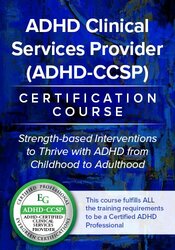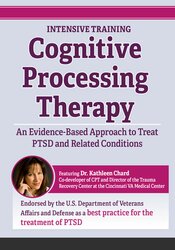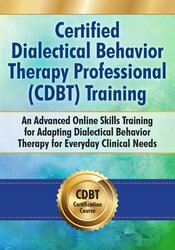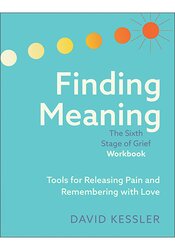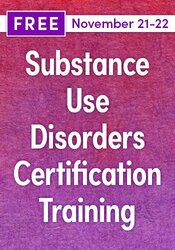Flexible, self-paced learning—no fixed schedule required.
Navigating ADHD with the 5Cs: A Clinician’s Approach to Family Support
November 13, 2024

The 5Cs approach provides clinicians with a comprehensive and structured framework to support parents in managing children with ADHD. This model is built around five core principles:
- Self-Control: Encourages parents to regulate their own emotions before responding to their child, modeling emotional regulation in the process.
- Compassion: Guides parents to meet their children where they are, fostering empathy and understanding that aligns with the child’s developmental stage.
- Collaboration: Promotes a partnership between parent and child, encouraging joint problem-solving and cooperative decision-making. This helps the child take ownership of their actions and emotions in a healthy, controlled way.
- Consistency: Helps parents create a stable and predictable environment, emphasizing steady follow-through on commitments without striving for perfection.
- Celebration: Highlights the importance of recognizing and reinforcing the child’s progress and strengths, urging parents to provide continuous encouragement and validation.
By applying these principles, clinicians can empower parents to create a supportive, growth-oriented environment for their children, fostering emotional regulation, resilience, and positive development.
Self-Control
Self-control emphasizes the importance of reminding parents to manage their own emotions before responding to their child’s behavior, allowing them to model emotional regulation for the child. This strategy enables parents to teach their child how to manage their own feelings effectively.
For example, children with ADHD often blurt things out, causing interruption in school and in conversation. One way to combat this using the self-control method is to teach kids to use the, “WAIT NOW”, method to pause their thought processes and help them reflect on what they are about to say before they begin interrupting. Encourage children to pause and ask themselves, “why am I talking now”, and then see if they still need to say what’s on their mind.
Another common trait among children with ADHD is a habit of back-talking. This trait can cause bitterness between the parent and the child, leading to more stress and arguments. One way to use the self-control method to cut back on back talk is to encourage the parent to give the child a “take-back of the day”. Everybody gets one statement every day that they can freely take back, even the parents. This practice encourages the child to pause and reflect on their words before speaking, asking themselves, “Is this the statement I want to use my take-back on today?” This thoughtful approach promotes more mindful and intentional communication between the parent and child.
Compassion
Compassion encourages parents to meet the child at their developmental level, promoting empathy and patience rather than imposing preconceived expectations. Clinicians can advise parents to adopt a flexible approach, utilizing various tools or focusing on specific areas of concern over time, understanding that learning new skills requires practice and periodic revisiting of strategies.
Children with ADHD often feel scatterbrained as their minds bounce from task to task. Consider asking them, “What’s most important”. This helps them focus more easily on one task. This helps the child not feel like they are being nagged by the adult, reducing the chances of feeling overwhelmed and just giving up.
Another compassionate strategy that often helps children with ADHD is to encourage the parents to nurture non-academic skills with the child. Children with ADHD frequently find it challenging to stay focused in school. Despite their efforts, they can feel disheartened when they fall behind their peers. However, hands-on activities often engage them more effectively, sometimes sparking a passion that allows them to thrive.
Collaboration
In therapy, fostering a collaborative environment is essential when working with children and their families. Instead of guiding with a “you should” directive, encourage a “we” approach to problem-solving. This collaborative method not only empowers the child but also strengthens their sense of ownership in the therapeutic process. By working together and focusing on changing one specific issue at a time, you can create a more supportive and manageable path to progress. Prioritizing the child's input helps build trust and encourages long-term success.
However, one of the frequent hurdles children with ADHD face is procrastination. Parents may find themselves feeling like the "bad guy," resorting to threats of taking away privileges until the work is done. Instead, encourage parents to focus on positive reinforcement. Offering incentives can motivate children to complete their tasks more willingly, reducing frustration and fostering a more positive environment.
Additionally, clinicians working with children who struggle with social anxiety, particularly those with ADHD or similar challenges, can play a pivotal role in developing their social skills. It's important to create an open dialogue when the child is receptive, giving them your full attention while discussing their social difficulties. Avoid immediately offering solutions, but rather listen actively and clarify what they desire in social interactions. Encourage the use of eye contact and role-play conversation starters to ease social interactions. Clinicians may also consider recommending group activities, such as social skills groups or improvisational theater classes, which provide a safe space for children to practice and build confidence in a structured and supportive environment.
Celebration
Lastly, the celebration phase is critical in your work with parents, as it involves guiding them to consistently recognize and celebrate their child’s progress. As a clinician, it's important to emphasize the value of continuous encouragement, helping parents to focus on their child’s strengths and achievements. By doing so, you can help foster the child’s confidence and motivation—key elements for long-term growth and development. Encouraging parents to highlight progress, no matter how small, builds resilience in the child and reinforces a positive feedback loop that promotes ongoing success.
Helping parents understand the impact of positive reinforcement is essential, especially when children face challenges like homework. When frustration sets in and progress seems difficult, it can be hard for both the parent and the child to recognize any positives. Encourage parents to focus on their child’s efforts, even when the work is incomplete or incorrect. Highlighting these efforts as signs of engagement can go a long way in boosting the child’s confidence. Guide parents to offer specific, encouraging feedback in these moments, reminding the child that they are on the right track and that their efforts are noticed and appreciated. This simple but impactful shift in perspective can strengthen a child's resilience and motivation over time.
Furthermore, children with ADHD often tend to dwell on negative experiences, which can contribute to low self-esteem and discouragement. A useful strategy to combat this is to help parents create a daily routine where they review positive moments with their child, no matter how small or big. Encouraging parents to ask their child to identify three good things from the day can shift attention toward the positive, fostering improved self-confidence, greater satisfaction, and a stronger parent-child connection. This ritual, whether done during dinner or at bedtime, reinforces a sense of achievement and emotional closeness.
Helping clients incorporate these strategies into their daily routines can make a significant difference in helping children with ADHD build resilience, confidence, and emotional well-being. By fostering a positive environment, parents and clinicians alike can empower children to embrace their strengths and work through challenges with greater ease.
For a better visual of these tips and ideas, download these free, printable cards from The ADHD Solution Deck: 50 Strategies to Help Kids Learn, Reduce Stress & Improve Family Connections filled with tools and activities designed to support both children and their families in managing ADHD effectively.

